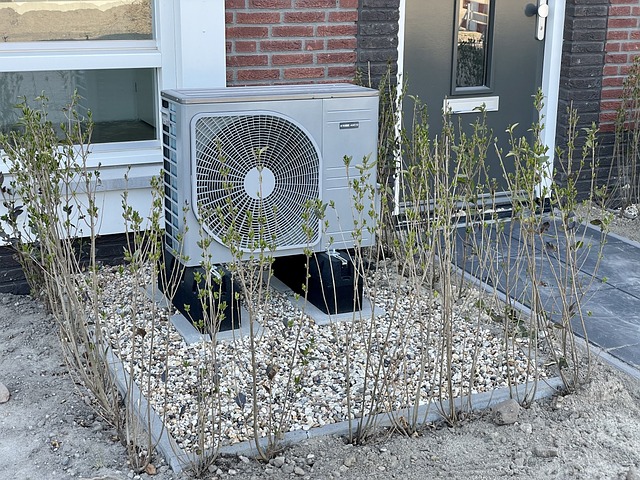Introduction:
Heat pumps have become increasingly popular as a sustainable and energy-efficient alternative for home heating and cooling. In this comprehensive guide, we’ll explore the benefits of heat pumps, how they work, factors to consider before installation, potential drawbacks, and associated costs. Learn more about sustainable living and climate resilience at ClimatewiseLiving.com.
- Benefits of Heat Pumps
- Energy efficiency: Heat pumps use less energy compared to traditional heating and cooling systems, reducing energy consumption and utility bills.
- Environmental impact: Because they rely on electricity instead of fossil fuels, heat pumps can help reduce greenhouse gas emissions when powered by renewable energy sources.
- Heating and cooling capabilities: Heat pumps provide both heating and cooling functions, simplifying your home’s HVAC system.
- Improved air quality: Many heat pump models have built-in air filters that help remove dust, pollen, and other allergens from your home’s air.
- Longevity: Heat pumps can last up to 20 years with proper maintenance, making them a durable choice for your home.
- How Heat Pumps Work
Heat pumps transfer heat from one location to another using a refrigeration cycle. During the heating season, they extract heat from the outside air or ground and transfer it indoors. In the cooling season, the process is reversed, and heat is extracted from the indoor air and transferred outside.
There are three main types of heat pumps:
- Air-source heat pumps: These systems extract heat from the outdoor air and are the most common type of heat pump.
- Ground-source or geothermal heat pumps: These systems use the stable temperature of the earth to transfer heat, making them more efficient but also more expensive to install.
- Water-source heat pumps: These systems use a nearby water source, such as a pond or lake, as a heat exchanger, providing an efficient and environmentally friendly heating and cooling solution.
- Factors to Consider Before Installation
- Climate: Heat pumps work best in moderate climates where the temperature doesn’t drop too low. In colder climates, a backup heating system may be necessary.
- Energy source: If your home is powered by renewable energy, such as solar or wind power, a heat pump can help further reduce your environmental impact.
- Home insulation: Proper insulation and sealing are essential for maximizing the efficiency of a heat pump system. Ensure your home is well-insulated before installation.
- Existing HVAC system: If you have an older, less efficient heating and cooling system, a heat pump may be a cost-effective replacement.
- Potential Drawbacks
- Upfront costs: The initial cost of purchasing and installing a heat pump can be high, particularly for ground-source systems. However, the long-term energy savings may offset the upfront costs.
- Limited heating capacity in extreme cold: In very cold climates, air-source heat pumps may struggle to provide adequate heating, requiring a backup heating system.
- Maintenance: Regular maintenance is required to ensure your heat pump operates efficiently, including cleaning or replacing filters and scheduling professional servicing.
- Costs
- Purchase price: The cost of a heat pump can range from $4,000 to $20,000 or more, depending on the type, size, and efficiency rating.
- Installation: Installation costs vary depending on the complexity of the project, with ground-source systems typically being more expensive to install.
- Operating costs: While heat pumps can help reduce energy bills, the actual savings will depend on factors such as insulation, climate, and electricity rates.
Conclusion:
Heat pumps can be an energy-efficient and environmentally friendly solution for heating and cooling your home. By understanding the benefits, how they work, and factors to consider before installation, you can make an informed decision about whether a heat pump is right for your home

Comments are closed